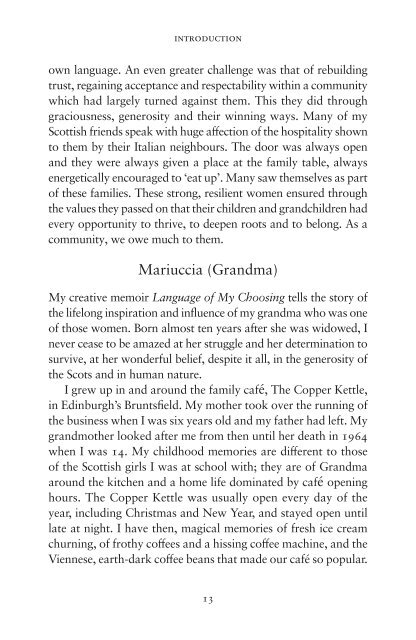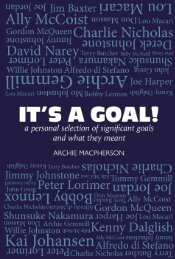Magnaccioni by Anne Pia sampler
Magnaccioni (Roman dialect): people who live to eat well. 'I know no other word that captures that rare gift, that supremely basic human quality of eating with mind, eyes and heart and radiating uncontainable pleasure in so doing.' Writing as a passionate food aficionada, Anne Pia has created a convivial and open-hearted cookery book that invites you into her kitchen. In Magnaccioni, she shares her own family recipes and the food she has enjoyed in Italy based on la cucina povera, la cucina di terra – the use of fresh produce and simple ingredients to create sumptuous, joyful feasts. Get ready to listen to Italian music, pour a glass of wine and enjoy cooking with Anne. Join her in becoming magnaccioni!
Magnaccioni (Roman dialect): people who live to eat well.
'I know no other word that captures that rare gift, that supremely basic human quality of eating with mind, eyes and heart and radiating uncontainable pleasure in so doing.'
Writing as a passionate food aficionada, Anne Pia has created a convivial and open-hearted cookery book that invites you into her kitchen. In Magnaccioni, she shares her own family recipes and the food she has enjoyed in Italy based on la cucina povera, la cucina di terra – the use of fresh produce and simple ingredients to create sumptuous, joyful feasts.
Get ready to listen to Italian music, pour a glass of wine and enjoy cooking with Anne. Join her in becoming magnaccioni!
Create successful ePaper yourself
Turn your PDF publications into a flip-book with our unique Google optimized e-Paper software.
Introduction<br />
own language. An even greater challenge was that of rebuilding<br />
trust, regaining acceptance and respectability within a community<br />
which had largely turned against them. This they did through<br />
graciousness, generosity and their winning ways. Many of my<br />
Scottish friends speak with huge affection of the hospitality shown<br />
to them <strong>by</strong> their Italian neighbours. The door was always open<br />
and they were always given a place at the family table, always<br />
energetically encouraged to ‘eat up’. Many saw themselves as part<br />
of these families. These strong, resilient women ensured through<br />
the values they passed on that their children and grandchildren had<br />
every opportunity to thrive, to deepen roots and to belong. As a<br />
community, we owe much to them.<br />
Mariuccia (Grandma)<br />
My creative memoir Language of My Choosing tells the story of<br />
the lifelong inspiration and influence of my grandma who was one<br />
of those women. Born almost ten years after she was widowed, I<br />
never cease to be amazed at her struggle and her determination to<br />
survive, at her wonderful belief, despite it all, in the generosity of<br />
the Scots and in human nature.<br />
I grew up in and around the family café, The Copper Kettle,<br />
in Edinburgh’s Bruntsfield. My mother took over the running of<br />
the business when I was six years old and my father had left. My<br />
grandmother looked after me from then until her death in 1964<br />
when I was 14. My childhood memories are different to those<br />
of the Scottish girls I was at school with; they are of Grandma<br />
around the kitchen and a home life dominated <strong>by</strong> café opening<br />
hours. The Copper Kettle was usually open every day of the<br />
year, including Christmas and New Year, and stayed open until<br />
late at night. I have then, magical memories of fresh ice cream<br />
churning, of frothy coffees and a hissing coffee machine, and the<br />
Viennese, earth-dark coffee beans that made our café so popular.<br />
13


















